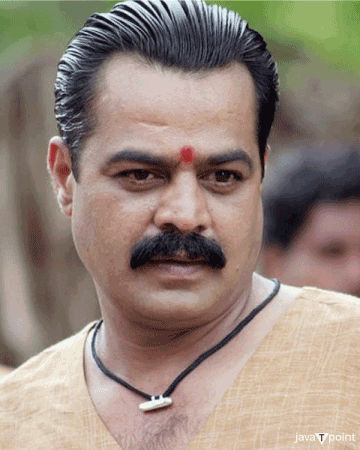Kantara ReviewCast: Rishab Shetty, Kishore, Achyut Kumar, Saptami Gowda Director: Rishab Shetty Rating: 8.3/10 (IMDB) 
About Rishab Shetty
Prashant Shetty, professionally known as Rishab Shetty, is an Indian actor and film director best known for his work in Kannada cinema. He is best known for Kantara, a critical and economic success in which he directed and starred. He has received numerous awards, including the National Film Award for Best Children's Film for Sarkari Hi at the 66th National Film Awards. Ramanna Rai plays Pra. Shaale, Kasaragodu, and Koduge. About Achyuth Kumar
Achyuth Kumar is an Indian actor who primarily appears in Kannada films. Born in the Hassan district town of Belur and raised in Tiptur. He earned a bachelor of commerce degree from Kalpatharu First Grade College, which was then affiliated with the University of Bangalore. He is best recognised for his roles in the films KGF 1 and 2, Kantara, Sidlingu, and Lucia, and he has won three South Filmfare Awards and two Karnataka State Film Awards, one each for Best Supporting Actor and Best Actor. Synopsis of the MovieWhen you cannot figure out who the enemy is within the first 10 minutes, you know you're watching a well-written film. While not revealing himself, the cunning enemy creates the appearance of distrust in the narration. We can't tell who the bad guy is or what their motivations are until we're involved in the film and trying to untangle the tangles. The critical point is frequently close to the climax. This is the experience of viewing Rishab Shetty's latest film Kantara, a well-written, wonderfully photographed, and superbly executed cinematic experience. Kantara's core plot is a well-known one. The film is about indigenous peoples' rights on the land where they have lived for generations. It's a power struggle between indigenous peoples and the government, which is attempting to regulate their way of life. Based on his wife's recommendation, a man heads into the forest to collect some herbal roots that will prevent his hair from falling out. The forest officer, Muralidhar (Kishore), takes offence, smacks the locals, and demands, "Do you think this forest is your ancestral property?" The quick answer is yes. The villagers believe they have earned the right to enjoy everything the forest has to offer because they have been a part of its ecosystem for hundreds of years. The indigenous people fail to comprehend the orders of the cop. "Who the hell is he to tell us all these things?" they wonder. Kantara, a visually sumptuous, instantly immersive spectacle mounted with extraordinary vim and vigour by writer-director-actor Rishab Shetty, is a heady blend of history, myth, folklore, high drama, and stylishly choreographed action neatly wrapped in a form firmly rooted in the cultural milieu from which it has sprung. Shetty is also the film's writer and star performer. As a screenwriter, his work is likely to fall just short of perfection, but the narrative has enough gravity and brightness to translate into a mass entertainer that is visceral, rousing, and unfailingly compelling. A variety of factors contribute to Kantara's success, but the most noticeable are the on-screen actors, led magnificently by Shetty. He packs a punch that leaves us reeling and reverberates long after the film has ended. The picture gets off to a fast start. Within the opening 15 minutes or so of the film, the introduction of a heavenly spirit that watches over the forest and a dramatic Kambala buffalo race establish the tone. It takes some time to adjust to the sensory overload. However, once the film's design - both visual and aural - is shown in all its glory, everything fits into place and takes the spectator into the captivating Kantara (literally, mystical woodland) cosmos. The compelling drama focuses on the complicated social and divine power dynamics that have always been at work in a coastal Karnataka village where a seemingly benign feudal lord wields unrestricted, unquestioned authority over the people. He makes decisions that benefit the villagers. The latter agree. The connection between the master and his serfs is not based on servility. Loyalty is the key. It has been built over decades of what appears to be compassion but may not be. A conflict arising from threats to the rights of forest dwellers over vast swaths of land that have been their home for ages is also key to Kantara's plot. Shetty's performance as the buffalo race champion Shiva, a fiery young rebel with a mission, is filled with dizzying intensity. The young man must deal with demons of his own mind; frequent nightmares in which he sees glimpses of the reigning deity in a wrathful avatar push him to the brink of despair, as does the continual yearning to release his increasing rage. His rash reaction to provocations landed him in hot water with the authorities and his own mother, Kamala (Manasi Sudhir). She worries in vain about his compulsive hunting of wild boars, which is linked to the disturbing dreams that interrupt his sleep on a regular basis, and violent clashes with the landlord's tenants. The actor-director creates an exciting larger-than-life figure whose unpredictable behaviour shapes the frisson that pervades the film. The young man, who is always on edge, has vowed to protect the community from forces bent on denying indigenous peoples access to their ancestral territory. He and government officials clash because the latter are unable to admit that the forest belongs to the peasants. Kantara, a picture of incredible sweep and intensity, provides a blindingly stunning conclusion and build-up that sends the film soaring to heights few genuinely great commercial films have ever attained. Arvind S. Kashyap's cinematography and B. Ajneesh Loknath's musical score are both outstanding. They collaborate to produce an unforgettable, out-of-the-ordinary cinematic experience. The nature and dimensions of Shiva's conflict become obvious as tensions rise in the hamlet and the forest's demigod (ritually commemorated in the yearly Bhoota Kola celebration) lurks in the background, always ready to strike. Shiva's main adversary is Muralidhar (Kishore), an upright deputy forest range officer who will go to any length to ensure that the government's writ is followed. Shiva's master and patron, Devendra Suttur (Achyuth Kumar), finds common cause with the feisty young man. But, are the strong arbiter's goals pure? Kantara's early moments provide some broad historical indications. The screenplay describes the current conflict's context in rapid succession. In 1847, the King, at the request of the Panjurli (boar) demigod, grants enormous swaths of territory to the tribal residents of the forest in exchange for decades of peace and prosperity. Many decades later, the King's successor, motivated by avarice and drunk on power, wants the royal family to reclaim all of the territory. Infuriated by the transgression of the long-standing pact, the deity punishes the wrongdoer immediately. In 1990, the year of Kantara's setting, a government officer comes in the village with a mandate to seize possession of the forest land under his command. The narrative crux of the story is comprised of legends and myths widespread in the area, as well as beliefs flowing from the collective memory of the forest residents. The film has a strong feeling of the distinct ethos of the individuals it is about. Shiva, a Bhoota Kola ritual performer, represents an ancient custom but has transferred the mantle to a cousin because he witnessed his father's departure while he was in the form of the demigod. Shiva is haunted by his loss, which drives him to battle for the preservation of his cultural/spiritual roots. Shiva is a virile defender of his people and their animistic ideology, but he isn't the conventional, unbeatable Alpha male that films like KGF, RRR, and Pushpa have brought back to the mainstream of Indian cinema and made a killing at the box office. Kantara fights the temptation and comes out unscathed. The climactic good-versus-evil battle - which isn't your typical hero-vs-villain scenario - catapults Kantara to a higher plane. It more than compensates for the film's one flaw. The personalities around Shiva - his buddies and his love Leela (Sapthami Gowda) - are not as vivid as the film's other technical and narrative aspects. In light of the continuous overall delicacy, everything less than flawless in this film will count merely as a little wrong stroke on an otherwise flawless painting. Kantara is an immensely entertaining picture, pushed by Rishab Shetty's blindingly superb star turn and impressive directing skills. An incredible must-see.
Next TopicKanam Review
|
 For Videos Join Our Youtube Channel: Join Now
For Videos Join Our Youtube Channel: Join Now
Feedback
- Send your Feedback to [email protected]
Help Others, Please Share









